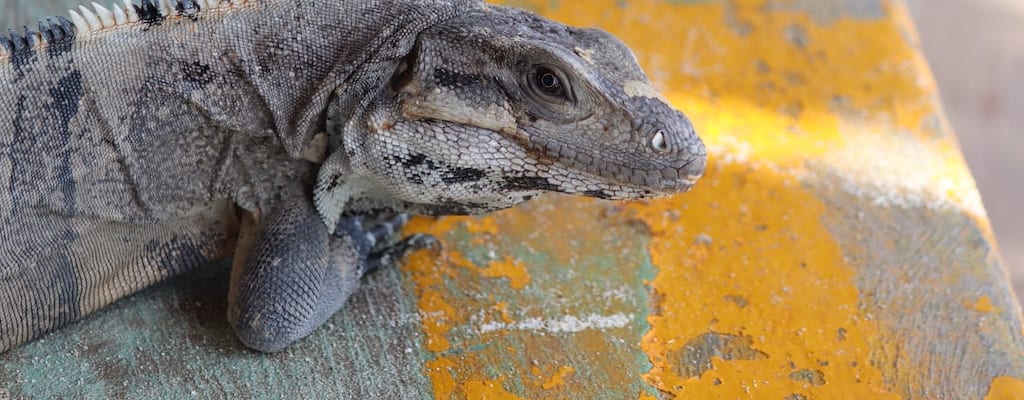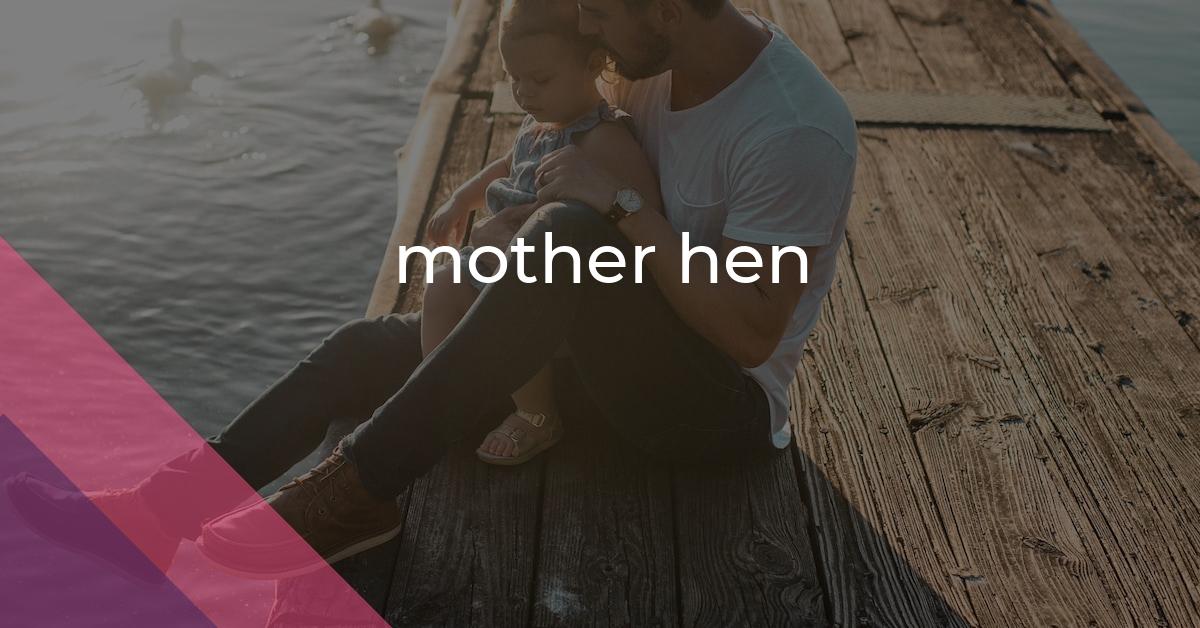mother hen: Idiom Meaning and Origin
What does ‘mother hen’ mean?
The idiom "mother hen" refers to a person, typically a woman, who is overly protective and concerned for the well-being of others, especially those in her care.

Idiom Explorer
The idiom "who's 'she', the cat's mother" is a dismissive phrase used to scold someone for referring to a woman as "she" instead of using her name. It conveys the importance of addressing people by their proper names rather than using generic terms.
The idiom "save someone's skin" means to rescue or protect someone from danger or harm.
The idiom "rule the roost" means to be in control or have authority over others, especially in a family or group setting.
The idiom "roof over one's head" means having a place to live or having shelter. It emphasizes the basic necessity of having a roof to protect oneself from the elements.
A "queen bee" refers to a dominant or influential woman who holds a position of power or authority. She is often seen as the leader in a social group or organization, and others may look up to or follow her.
The idiom "put on a pedestal" means to admire or worship someone or something to an excessive extent, often idealizing them and treating them as if they are perfect or infallible.
The idiom "power-hungry" refers to a person who is excessively eager or desperate to gain or maintain power. They are driven by a strong desire for control or authority and may use unethical or manipulative means to achieve their goals.
The idiom *poster girl* refers to a person who embodies the qualities or characteristics of a particular cause, movement, or idea, often used in a positive or idealized way.
An idiom used to refer to a particular person's character, occupation, or role, highlighting its uniqueness and individuality.
Meaning Unraveled
The idiom "mother hen" is a commonly used expression in the English language. It is often used to describe someone who is excessively concerned or protective, particularly in relation to a group of people or objects. The idiom derives its meaning from the behavior of a mother hen. Just like a mother hen who provides warmth, protection, and care to her chicks, individuals described as "mother hens" are known for their nurturing and protectiveness towards others.
The idiom "mother hen" is believed to have originated from the natural behavior of hens in looking after their offspring. Hens are known to be extremely nurturing and show great care and protectiveness towards their chicks. This behavior includes keeping their young under their wings, providing them warmth, and ensuring their safety from potential threats. In a similar vein, individuals who are described as "mother hens" in an idiomatic sense exhibit a similar level of protectiveness or concern towards others. They go above and beyond to ensure the well-being and safety of those they care about.
The idiom "mother-hive" is related to the concept of a "mother hen." In this context, a "mother-hive" refers to a central hub or group that is responsible for taking care of and supporting others. Just like a mother hen provides a safe and nurturing environment for her chicks, a "mother-hive" plays a similar role in providing guidance, support, and protection to its members. It is a place where individuals can rely on each other and know that they have a support system that looks out for their well-being.
The idiom "be mother" is another related phrase to consider. In this context, "be mother" refers to taking on the role of a nurturing figure within a group. When someone is said to "be mother," they are seen as the individual who takes care of others, offers guidance, and provides support. Similar to a mother hen, a person who "is mother" in a group ensures the well-being and safety of others. They are known for their nurturing and protective nature, often offering advice and intervening to prevent any harm or discomfort.
Individuals who are described as "mother hens" are often seen as caregivers or protectors within a group. They take on the role of a nurturing figure, providing support and guidance to others. Just like a mother hen watches over her chicks, a "mother hen" shows great care and concern for those around them. They worry about the well-being and safety of others and can often be found offering advice and checking in on everyone. Their nurturing nature makes them a vital part of any group, providing comfort and support.
While the idiom "mother hen" is commonly associated with women due to the traditional nurturing role assigned to mothers, it can be used to describe both men and women who exhibit similar traits. The idiom is used in an informal manner to tease or affectionately acknowledge someone's tendency to be overly concerned or protective. It highlights the depth of care and concern that some individuals possess for those around them. "Mother hen" is a light-hearted way to describe someone who has a nurturing and protective nature, often going above and beyond to ensure the well-being and safety of others.
The idiom "mother-hive" is an extension of the concept of a "mother hen." It represents a central hub or group that takes care of and supports others. Within this "mother-hive," individuals can rely on each other and find a sense of belonging. Similar to a mother hen's role in providing guidance, support, and protection to her chicks, a "mother-hive" provides a safe and nurturing environment for its members. It is a place where individuals can find support and know that they have others looking out for their well-being.
Another related idiom is "be mother," which emphasizes the nurturing figure within a group. When someone is said to "be mother," they are taking on the role of providing care and support to others. They become the nurturing figure that others can rely on, offering guidance and protection. Just like a mother hen, a person who "is mother" ensures the well-being and safety of others. They take on a caregiving role, going above and beyond to provide comfort and support.
The idiom "mother hen" encompasses the strong nurturing and protective instincts found in both hens and humans. It captures the essence of individuals who show care, concern, and protectiveness towards others. Just as a mother hen watches over her young, individuals described as "mother hens" exhibit a similar level of attention and dedication to the well-being and safety of those in their care. They offer support, guidance, and a sense of security. Their nurturing nature makes them an invaluable asset within a group, ensuring that everyone feels protected and cared for.
Through the use of the idiom "mother hen" and related idioms like "mother-hive" and "be mother," we gain a deeper understanding of the nurturing and protective traits found in both hens and humans. These idioms highlight the value of individuals who show care, concern, and a willingness to go above and beyond for the well-being of others. Whether it's the role of a "mother hen" within a group or the support provided by a "mother-hive," these idioms reflect the importance of nurturing and protecting those around us.
The idiom "mother hen" is a commonly used expression to describe someone who is overly concerned or protective, just like a mother hen with her chicks. This idiomatic phrase is often associated with individuals who take on the role of a caregiver or protector within a group, providing guidance, support, and ensuring the well-being and safety of others. Additionally, the related idioms "mother-hive" and "be mother" further emphasize the nurturing and protective nature of individuals within a group. These idioms highlight the value of care, concern, and support in fostering a safe and nurturing environment for those involved.
Example usage
Examples of how the idiom "mother hen" can be used are:
1. She's always fussing over her friends, like a real mother hen.
2. The teacher acted like a mother hen, making sure all the students were organized and on time.
3. My older sister is such a mother hen, always checking up on me and making sure I'm taking care of myself.
More "Animals" idioms



